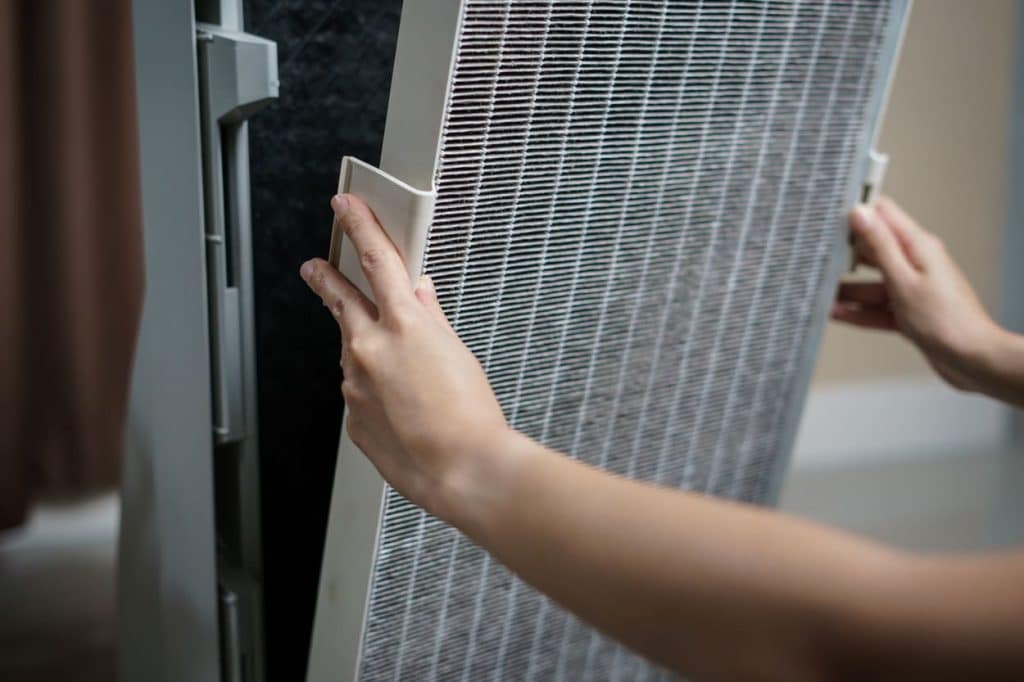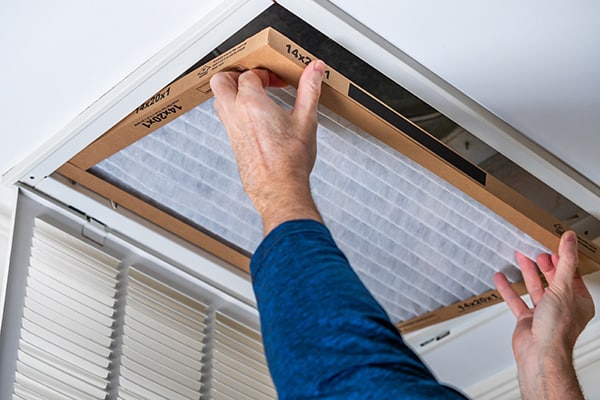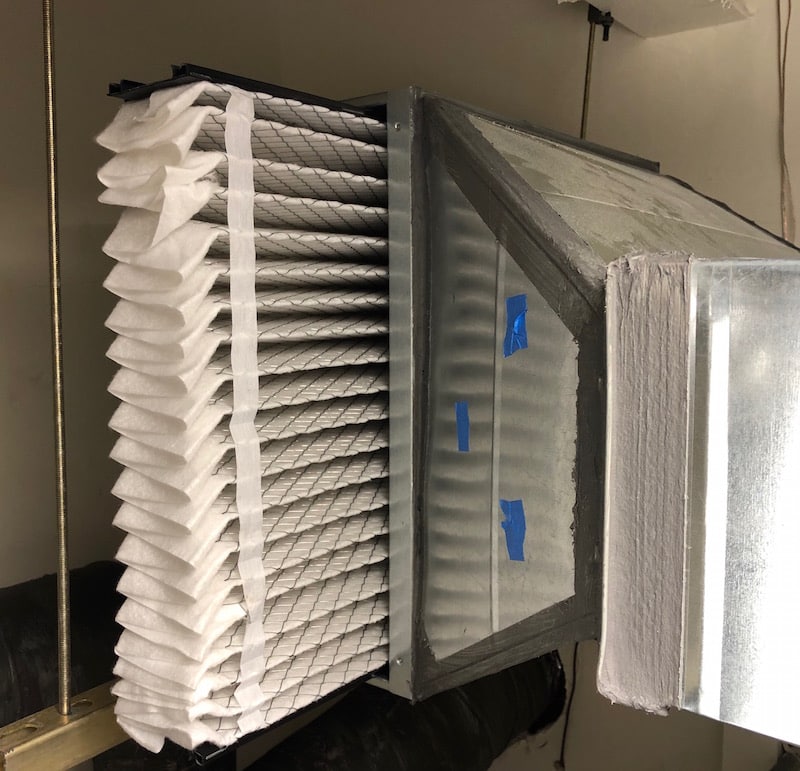In the realm of indoor air quality (IAQ) management, selecting the appropriate air filter for your heating, ventilation, and air conditioning (HVAC) system is paramount. With an array of options available, the decision-making process can be daunting. Among the most commonly debated choices are HEPA (High-Efficiency Particulate Air) and MERV (Minimum Efficiency Reporting Value) filters. This comprehensive guide aims to delve deep into the intricacies of both filter types, elucidating their features, advantages, drawbacks, and applications to empower consumers with the knowledge necessary for informed decision-making.
Understanding HEPA Filters: In-Depth Analysis

HEPA filters are renowned for their exceptional filtration capabilities, particularly in capturing microscopic particles as small as 0.3 microns. This superior performance is attributed to their dense fiber composition, which effectively traps a myriad of airborne contaminants including dust mites, pollen, pet dander, mold spores, bacteria, and even viruses. Originally developed during World War II to safeguard scientists working on the Manhattan Project from radioactive particles, HEPA filters have since found widespread application in various industries such as healthcare, pharmaceuticals, electronics manufacturing, and residential settings.
Advantages of HEPA Filters: Enhancing Indoor Air Quality
The primary advantage of HEPA filters lies in their unparalleled filtration efficiency, which can exceed 99.97% for particles as small as 0.3 microns. This exceptional performance ensures that indoor air is purified to the highest standards, thereby reducing the risk of respiratory ailments and allergies. Furthermore, HEPA filters are instrumental in creating a healthier living environment by mitigating the presence of allergens and pathogens, making them indispensable for individuals prone to allergies or respiratory conditions.
Moreover, HEPA filters are highly durable and long-lasting, provided they are properly maintained. With routine cleaning and periodic replacement, HEPA filters can deliver consistent performance over an extended lifespan, thereby offering long-term value for consumers.
Drawbacks of HEPA Filters: Considerations to Keep in Mind
Despite their remarkable filtration efficacy, HEPA filters are not without their limitations. One notable drawback is their initial cost, which tends to be higher compared to other filter types such as MERV filters. This upfront investment may deter some consumers, particularly those operating within constrained budgets.
Additionally, HEPA filters may impede airflow within HVAC systems due to their dense structure, potentially leading to reduced system efficiency and increased energy consumption. Regular monitoring and maintenance are essential to prevent airflow restrictions and ensure optimal performance.
Understanding MERV Filters: A Comprehensive Overview

In contrast to HEPA filters, MERV filters are characterized by their Minimum Efficiency Reporting Value, which denotes their effectiveness in capturing particles of varying sizes. MERV filters are available in a range of ratings from 1 to 16, with higher ratings indicating greater filtration efficiency. Commonly utilized in residential and commercial HVAC systems, MERV filters offer a cost-effective solution for maintaining indoor air quality.
Advantages of MERV Filters: Cost-Effective Filtration Solutions
One of the primary advantages of MERV filters is their affordability relative to HEPA filters. This cost-effectiveness makes them an attractive option for budget-conscious consumers seeking to enhance indoor air quality without breaking the bank. Furthermore, MERV filters offer versatility in terms of filtration efficiency, with options available to suit diverse applications and environmental conditions.
Additionally, MERV filters are designed to maintain optimal airflow within HVAC systems, thereby minimizing energy consumption and ensuring efficient operation. This inherent balance between filtration performance and airflow dynamics makes MERV filters a practical choice for most residential and commercial settings.
Drawbacks of MERV Filters: Limitations and Considerations
While MERV filters provide adequate filtration for many applications, they may not be as effective as HEPA filters in capturing ultrafine particles. Filters with lower MERV ratings may have limited efficiency in removing smaller contaminants, potentially compromising indoor air quality in environments with high levels of airborne pollutants.
Furthermore, MERV filters require regular replacement to maintain optimal performance, as accumulated debris and particulate matter can impede airflow and diminish filtration efficiency over time. Failure to adhere to recommended maintenance schedules can result in compromised IAQ and increased strain on HVAC systems.

Choosing the Right Filter for Your HVAC System: Factors to Consider
When selecting between HEPA and MERV filters, several factors must be taken into account to ensure compatibility with your HVAC system and alignment with your IAQ objectives. Key considerations include filtration efficiency, initial cost, long-term maintenance requirements, system compatibility, and environmental conditions.
Conclusion
In conclusion, the choice between HEPA and MERV filters hinges on a multitude of factors, each bearing significance in the context of your specific requirements and preferences. While HEPA filters offer unparalleled filtration efficiency and are ideal for environments where pristine air quality is paramount, they come with a higher upfront cost and may restrict airflow within HVAC systems. Conversely, MERV filters provide a cost-effective solution for most residential and commercial applications, albeit with slightly lower filtration efficacy.
By understanding the features, advantages, drawbacks, and applications of HEPA and MERV filters, consumers can make informed decisions that optimize indoor air quality, promote respiratory health, and ensure the longevity of their HVAC systems. Whether prioritizing filtration performance, cost-effectiveness, or system compatibility, the key is to strike a balance that aligns with your unique needs and circumstances.






GIPHY App Key not set. Please check settings